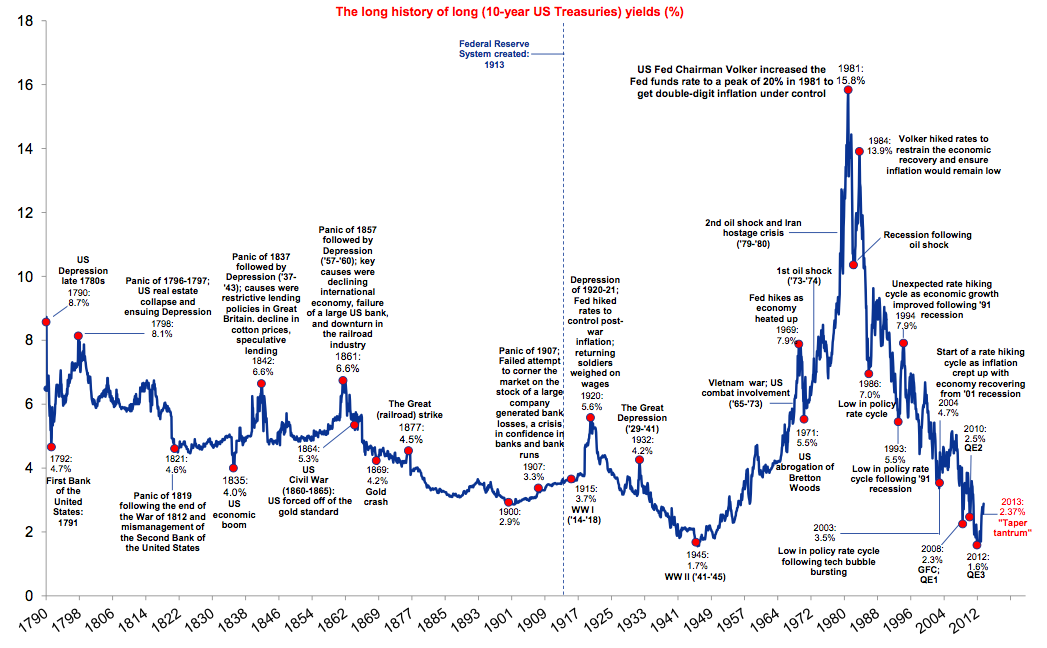"A fool who recognises his own ignorance is thereby in fact a wise man, but a fool who considers himself wise -- that is what one really calls a fool" - Buddha
Recently watched the classic finance movie Barbarians At The Gate and got me doing some research on the 1980s financial environment. Of course this eventually led to Michael Milken and Drexel Burnham Lambert. Like most people born in the '80s the main things I had heard and read about Milken was his use of high-yield bonds / 'junk bonds', and subsequent US Federal indictment. The assumption in articles that briefly mentioned him assumed he was guilty.
However after viewing these two video clips I realised the truth - my assumptions were misinformed:
- Steve Wynn on Milken (6 minutes long):
http://www.youtube.com/watch?v=gk1G_O3UQRo
- Michael Milken on at the United States Conference of Majors (one hour long):
http://www.youtube.com/watch?v=NTeQ03VQwA4&list=FLBQOYAj87D3-HgrbtSZhBWw&index=4
If you don't have time to watch these clips then this quote by author Alvin Toffler in his 1990 book Powershift will summarise it:
By forcing open the sluice gates of capital, Milken had rattled the entire structure of smokestack power in America...Before Milken, the greatest financier had been J.P. Morgan, who saw markets as a zero-sum game in which he tried to be the winner at someone else's expense. For example, when financing AT&T, Morgan used his enormous Wall Street and banking influence to ensure that potential AT&T rivals lacked access to capital. Milken did the opposite, opening access to capital for thousands of smaller companies. Milken showed it was possible to align the interests of all corporate stakeholders - investors, entrepreneurs, debtors, creditors, consumers, management, employees and society - to create jobs, wealth and economic growth. The key was his profound understanding of capital structure and how it must change as exogenous conditions change. [See Milken's articles "Why Capital Structure Matters" and "The Corporate Financing Cube".] By the late 1970s, he had already shown it was possible to unlock great potential value hidden in accumulated assets. As others began to exploit this insight, Milken turned increasingly to such issues as education, wage disparity, expanding human capital, and medical research.
A few quick points:
- Milken believed that a company that applied the appropriate capital structure between debt and equity would naturally boost the value and lower the risk of it's bonds. This was quite novel back in the 1970s but is now supposedly common material taught in MBA classes.
- He also demonstrated that a portfolio of high-yield bonds provided an attractive risk-adjusted return when compared to rating agencies investment-grade bonds.
- His
money-raising ability also facilitated the growth of leveraged buyout (LBO) firms such as Kohlberg Kravis Roberts (KKR).
- In 2008 the
Milken Institute continued to support
better credit rating agency regulation and continued to educate investors on bond investing.
Further interesting info:
-
Milken Institute 2011 Review - 'Where Is Sputnik'
- Or for those that really like
diggin in the crates, here is another great article:
http://www.edwardjayepstein.com/archived/milken.htm
---------------------------------------------------------------------------------------------------------------------------------------
I have also been researching some current US finance entrepreneurs recently such as
Carl Icahn and
Henry Kravis. Was impressed with some interviews from KKR (Kohlberg Kravis Roberts & Co) co-founder Henry Kravis where he acknowledges that a large part of KKR's success vs some other firms was their
culture of inclusion where each employee is encouraged to share information, resources and expertise for the good of the team.
By chance I was later
reading a report on Moody's due to Buffett's holding in the firm and found mention of KKR (NYSE stock code: KFN) in the specialised finance peer group. On comparison to other companies in the group I noticed it was trading on a PE of under 10 (mental note to look further into why it's on such a low PE...)
----------------------------------------------------------------------------------------------------------------------------------------
To those who haven't heard, Jeff Bezos is personally buying the Washington Post. He will assume the company's pension plan liabilities. In a time when most pension funds are underfunded the Post pension fund is currently
reported to have $1 billion more than it needs.
The employees of the Washington Post have Warren Buffett to thank. In 1975 Buffett advised then-chairman Katharine Graham via this
letter on how to prepare for the impending pension liabilities given future inflation assumptions and likely fund manager investing performance.
Well worth the read for any Buffett fans:
http://www.scribd.com/doc/160301289/Warren-Buffett-Katharine-Graham-Letter
-------------------------------------------------------------------------------------------------------------------------------------

